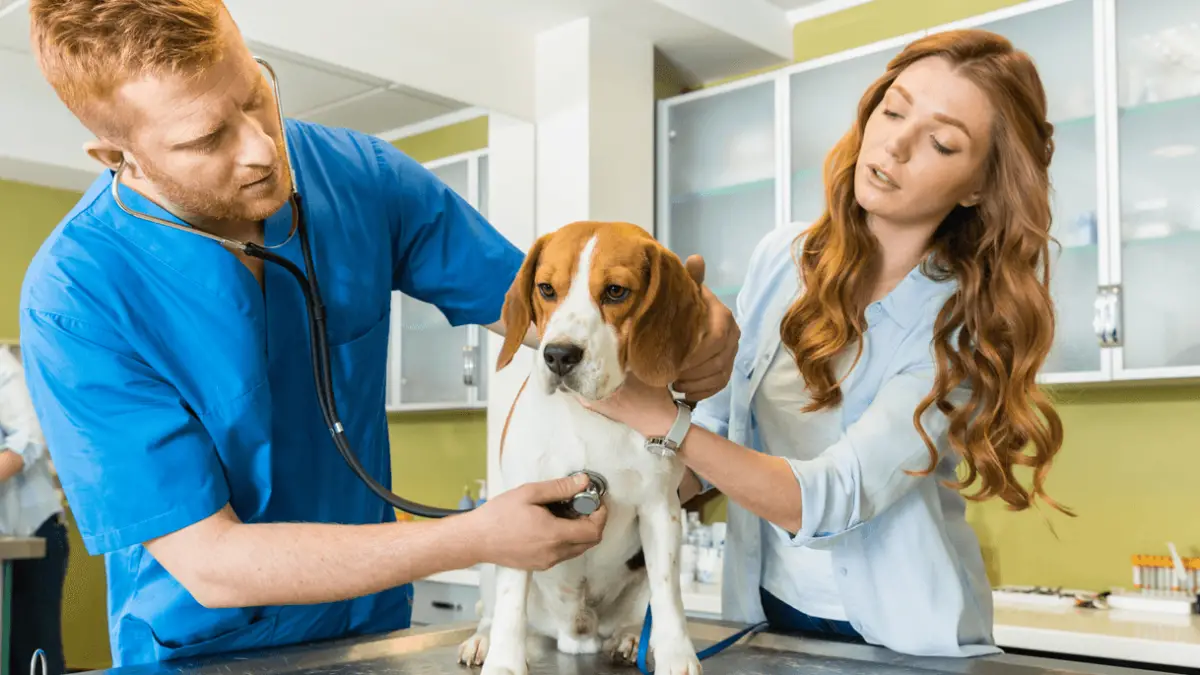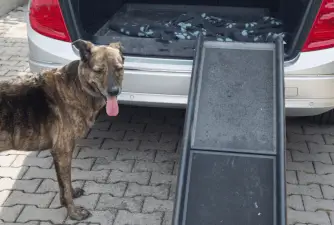How To Keep Your Dog Calm While At A Vet Clinic?
16.05.2022.
Is your dog afraid of the veterinarian's office? Veterinarians are a common cause of anxiety in dogs. As you can imagine, a typical vet visit for your dog involves quite a bit of meds, needles, and other unpleasant things. However, many dogs seem to have no issues going to the vet. You may be wondering, "How can I get my dog excited about going to the vet?" Here are a few steps you can take.
1. Find the best vet for your dog
Do you have a wonderful veterinarian? Is your dog's veterinarian's office a great place to go? Choosing a veterinarian can be a daunting task, but don't forget to ask your dog for their opinion. The veterinarian and other members of the animal care team should enjoy spending time with your pet. What is their demeanor toward animals and humans? Ultimately, are they truly interested in getting to know your dog and making them feel at ease? If not, you may want to find a new veterinarian.
RELATED: Can a Massage Help My Dog? Here’s What Vets Say
2. Get your dog used to handling
Many dogs, especially those that were not well-socialized as puppies, will not accept being handled by a stranger. If you've never done it before, it's even more difficult. You can begin to prepare your pet for a visit to the veterinarian by doing simple things at home. To start, learn how a standard veterinary examination is conducted. Then, conduct your own version of it at home.

Your dog may be more accepting of a stranger touching and handling if they get used to it. If you introduce them slowly and methodically to the vet and the rest of the staff working there, your dog will probably behave even better.
RELATED: How Many Treats Can Your Dog Actually Eat?
3. Practice visits
It is ideal if you can get your dog used to going to the vet before they're sick. If you do your job correctly, your dog may even look forward to visiting the veterinarian's office.
Visits to the veterinarian for no other reason than to socialize and observe are ideal. Your dog should be in good health at the time of the appointment. Your vet can tell you when their less busy times are. You don't have to make an appointment to see them.
Walk or drive your dog to the veterinarian's office. Reward your dog for being excited or calm and relaxed, and encourage them throughout the process. Go inside the clinic and meet and greet staff if your dog's reaction is positive. It's important to keep everyone happy and calm and avoid overwhelming your dog. It is acceptable to give your dog treats if they can handle them.
RELATED: 7 Tips for Keeping Dogs Comfortable During Car Rides
If your dog gets nervous, it's time to leave. A 10-second dash through the lobby might suffice to get the hang of it. You might even notice your dog's tail waving as you approach a friendly vet clinic. When ready, try scheduling a simple appointment for something like a basic exam.
4. Use dog treats
Most dogs enjoy eating, and yours is probably no exception. Every time you visit the veterinarian, bring along some of their favorite snacks. Get the good stuff from your vet, too. For dogs that need a little extra encouragement, veterinarians often keep special treats like peanut butter and chewy meat snacks on hand.

It's best to give your dog small amounts of treats frequently to avoid losing their enthusiasm. You don't want to make another trip to the vet because your pet is sick.
RELATED: 7 Tips for Picking the Best Doggy Daycare for Your Dog
5. Make sure you're at ease
As a result of your close relationship with your dog, they are extremely sensitive to your feelings. Your dog can tell if you're nervous, stressed, or afraid just by how you're acting. If you see your dog is frightened, anxious, or stressed, make sure your emotions are under control. If you fail to do that, your dog will be convinced that there's a valid reason for them to be agitated.
Regardless of your dog's behavior, you should keep calm and have a positive attitude at the vet's office. Avoid unintentionally reinforcing your dog's fear or anxiety, no matter how difficult it may be.
It is absolutely crucial to maintain your composure. Make every effort to ignore the anxious or fearful behavior your dog might be showing. If you act as if nothing is wrong, your dog may take that as a sign that everything is fine and their feelings are unjustified.
RELATED: 8 Things to Ask Potential Groomers Before You Choose The Right One
Even if you do everything correctly, some dogs are so terrified of visiting the vet that it seems hopeless. They may even require medication to deal with the stress of it. If this describes your dog, you may want to consider working with a professional dog trainer or behaviorist. See if you can get any recommendations or advice from your pet's veterinarian. Some veterinarians will come to your home to examine your dog, so this might be a viable option for you if your pooch is simply overly affected by vet visits.
World Dog Finder team







Share